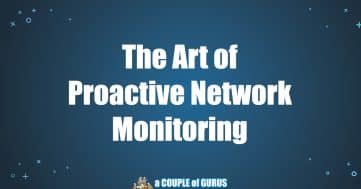Data Encryption for Manufacturing – Securing Your Data

Securing Your Manufacturing Data with Encryption
Data encryption for manufacturing is critical in today’s world. Data breaches are growing in frequency and severity in manufacturing. In 2021 alone, manufacturing cyber incidents cost companies an average of $4.5 million per breach. Unencrypted data stores are easy targets for attackers that put key manufacturing data at risk:
- In 2018, Boeing suppliers lost over 35GB of sensitive IP and aircraft designs to hackers targeting unencrypted servers.
- A 2020 breach at automotive parts manufacturer Magna cost over $10 million from factory downtime, fines, and lost sales.
Manufacturers have valuable proprietary information that underpins their business – product designs, chemical formulas, biotech materials data, precision manufacturing procedures. If stolen or altered, the impacts can be catastrophic:
- Loss of competitive advantage from stolen intellectual property. Estimated at over $5 billion annually for US manufacturers.
- Regulatory noncompliance fines upwards of 20% of global revenue.
- Disruption of production due to tampered operational data.
Encrypting stored and in-transit data provides an essential safeguard against cyber threats. A robust strategy combining encryption of data stores (data at rest on servers, computers, etc) and transmission channels delivers multiple layers of protection that can prevent over 80% of potential breaches.
The cost to implement basic data encryption for manufacturing is less than 0.5% of the potential loss from a single breach. As manufacturing data becomes more valuable and sought after, encryption delivers an exponentially growing ROI in risk reduction and averted losses.
Read on for practical guidance tailored to manufacturers on implementing state-of-the-art encryption across your data storage and transfers. Your business continuity and competitive advantage depend on it.
Encrypting Manufacturing Data at Rest
Manufacturing information that sits idle on your servers, computers, and devices poses a major vulnerability if left unencrypted. It’s crucial to encode sensitive proprietary data across all your systems when not actively being accessed.
Many manufacturers still often rely on aging legacy systems and proprietary software that lack built-in encryption capabilities. This makes integrating new data protection solutions challenging. Legacy platforms and protocols may be incompatible with or unable to support modern encryption standards. Manufacturers also often avoid upgrading legacy systems that still serve functional needs, leaving gaps in security defenses. Vital information remains siloed in outdated systems no longer supported by vendors.
To implement robust encryption of your inactive data, both legacy and current:
Prioritize High-Value Data
Conduct an audit to pinpoint your most sensitive information based on business impact. Focus first on encrypting this data to maximize risk reduction.
Choose Interoperable Solutions
Select widely supported encryption standards that avoid locking you into one vendor long-term. Work with experts to integrate smoothly.
Match Methods to Your Needs
Full disk and database options offer broad protection while file/folder encryption targets specific assets. Layered encryption combines strengths.
Future-Proof Through Key Management
Have strong processes that prevent unauthorized access to encryption keys. This keeps data protected as technology evolves.
With purposeful strategies tailored to your systems, encrypting manufacturing data at rest enables major gains in IP protection and compliance.
Securing Active Manufacturing Data
Encrypting inactive data provides the foundation of a robust cybersecurity strategy. However, data in use within your daily operations also requires protection:
- Product designs opened and edited during development.
- Real-time equipment performance data used on the factory floor.
- Private communications with regulators and business partners.
Various methods exist to encrypt active data flows:
Network Encryption
Blanket encryption applied across internal networks secures all traffic between systems and databases. This creates a safely encrypted ecosystem for data movement.
Application-Level Encryption
Encoding applied within software programs and apps protects data while being created and edited by users. For example, encrypting proprietary CAD files as they are designed.
Transport Layer Encryption
Secures direct data transmissions between two authorized points, like an ongoing file transfer between facilities or accessing cloud data.
Selective Field Encryption
For databases, only encrypts sensitive fields like employee personal information rather than full database volumes. Limits performance impact.
The right solution for your business depends on your infrastructure, systems and data workflows. Consult experienced professionals to determine optimal active data encryption strategies tailored to your needs.
Encrypting Data in Motion
In addition to securing active data within your systems, it’s also critical to encrypt your data while in transit between locations. With robust protection of both inactive data at rest and active data in use, data in motion represents the remaining vulnerability.
End-to-End Encryption
This method encrypts data at the originating point only to be decrypted by authorized recipients. Even service providers can’t access the encrypted data while it moves between endpoints.
Key benefits:
- Protects proprietary data like designs, formulas and communications.
- Maintains regulatory compliance by securing sensitive data flows.
- Reduces risk of compromised transfers exposing critical data.
Common Use Cases
Examples where manufacturing data needs end-to-end encryption:
- Transmitting files between facilities across private networks
- Backups to cloud storage providers
- Supply chain data shared with external vendors
- Secure email correspondence with regulators
Match Protocol to Data Sensitivity
Lower sensitivity data may only need a TLS/SSL certificate for web transfers. Highly confidential data requires use of VPN connections or specialized encrypted transfer tools to prevent interception.
Ensuring Regulatory Compliance
For manufacturers in regulated industries like medical devices, pharmaceuticals, aerospace, and defense, encryption is mandatory for remaining compliant and avoiding major penalties.
Regulations such as HIPAA, PCI-DSS, CMMC, and GDPR include stringent data protection and privacy mandates that encryption enables:
- Preventing unauthorized access to protected health information, payment data, controlled technical data, or personal data.
- Maintaining integrity of data through cryptographic controls to prevent tampering or alteration.
- Following proper protocols for access controls, auditing, and third-party oversight.
For example, a medical device maker must encrypt patient health data on their devices and in transit to meet HIPAA safeguard requirements. An aerospace manufacturer encrypting proprietary design files with CMMC-approved methods ensures compliance for exporting technical data.
In the event of a breach, having encryption in place provides tangible evidence you took proactive measures to secure data as required. This could make the difference between a minor compliance violation with small fine versus a major reputational scandal that halts operations.
Validating Proper Encryption Protocols
Documenting your encryption practices provides evidence that data is secured per compliance standards. Steps include:
- Regularly verify data is encrypted at rest and in transit.
- Track encryption methods and ciphers used.
- Log encrypted traffic and data access.
- Work with auditors to confirm ongoing compliance.
Following Access Control Guidelines
Encryption relies on controlling access to decryption keys. Best practices include:
- Multi-factor authentication to verify user identities.
- Strict key generation, escrow, storage and rotation policies.
- Limited decryption privileges only for essential personnel.
- Comprehensive access logs and change monitoring.
Proactively partnering with experienced security professionals is key to ensure readiness for your specific regulatory requirements. They become an extension of your team to handle implementation, monitoring, auditing and training – allowing you to focus on core business goals while encryption and compliance needs are met.
Finding the Right Partner
Encrypting manufacturing data is complex, especially when navigating legacy systems and regulations. The right managed service provider can help guide you through the process.
Vetting Provider Expertise
Seeking an advisor experienced with your industry regulations is key. Ask potential partners:
- Do you have experience with standards like HIPAA, CMMC?
- What is your methodology for compliance readiness?
- How do you stay current on changing regulations?
Ongoing Management
Day-to-day encryption management tasks like key rotation, system monitoring, and troubleshooting are best handled by dedicated experts.
Staff Training
Your employees need regular cybersecurity and compliance training. Partners can provide seminars on encryption best practices tailored for your workplace.
The right partner becomes an extension of your team, allowing you to focus on core business goals while encryption and compliance needs are met.
Conclusion
Implementing robust encryption is crucial for manufacturers to protect intellectual property, avoid breaches, and remain compliant. However, navigating evolving regulations and complex legacy systems poses challenges.
Partnering with an IT service provider like a COUPLE of GURUS provides the encryption expertise tailored to the manufacturing industry. Our experience with standards like HIPAA and CMMC enables compliant data protection. We stay current on encryption best practices and regulations to ensure your ongoing security.
With a COUPLE of GURUS as your trusted advisor, you can safeguard your manufacturing data at rest, in use, and in motion. We become an extension of your team so you can focus on your core business.
Contact us today to develop a comprehensive and compliant data encryption strategy custom-fit to your manufacturing needs.




